
Stromatolites at Lake Thetis, Cervantes, Western Australia. Stromatolites, are the oldest living
Here we describe stromatolites 3,400-3,500-Myr old from the Pilbara Block of Western Australia. These are the oldest firmly established biogenic deposits now known from the geological record.

Hamelin Pool Stromatolites, Western Australia
Modern day stromatolite reefs, analogous to both Precambrian and Phanerozoic examples, occur in Lake Clifton, Western Australia. This lake is a 21.5 km long and very shallow, generally little more than 1 m deep, but reaching a maximum depth of about 3 m. As with other coastal lakes in Western Australia, the water level rises during the winter

Stromatolites At Lake Thetis Western Australia Stock Photo Download Image Now Stromatolite
Stromatolites form in shallow water; some of the ancient ones from Western Australia formed along the rim of exploded volcanoes. This specimen was collected in the northern Pilbara by a former PhD student at The University of Western Australia, and is now part of the WA Museum's Department of Earth and Planetary Sciences collection.

Stromatolites Western Australia Stock Photo 190573130 Shutterstock
Lake Thetis is a saline coastal lake in the Mid West region of Western Australia. The lake is situated east of the small town Cervantes, 2 kilometres (1.2 mi) inland from the Indian Ocean, on a Quaternary limestone pavement. [1] The lake is part of Nambung National Park . Stromatolites, algal mats and fauna
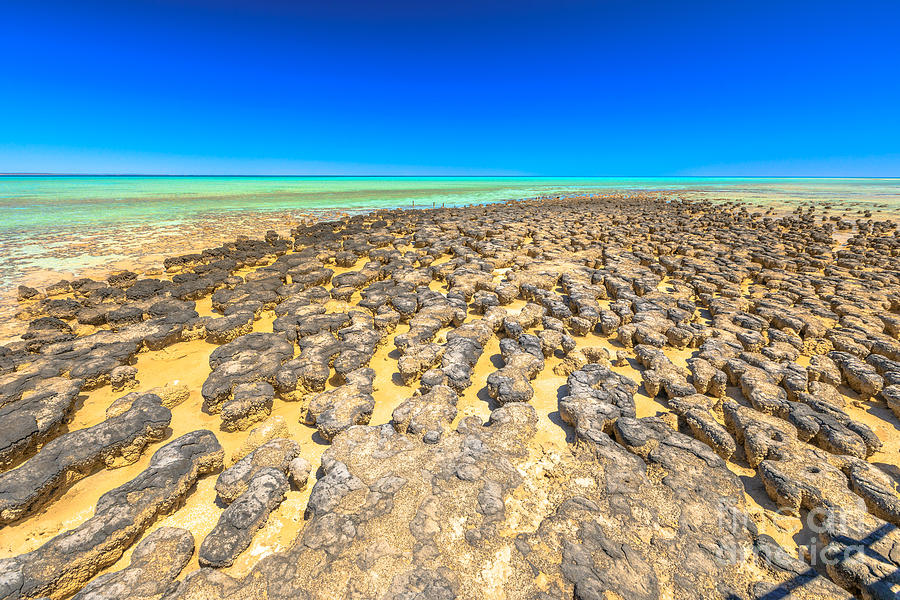
Stromatolites Western Australia Photograph by Benny Marty Pixels
Western Australia is internationally significant for its variety of stromatolite sites, both living and fossilised. Fossils of the earliest known stromatolites, about 3.5 billion years old,.
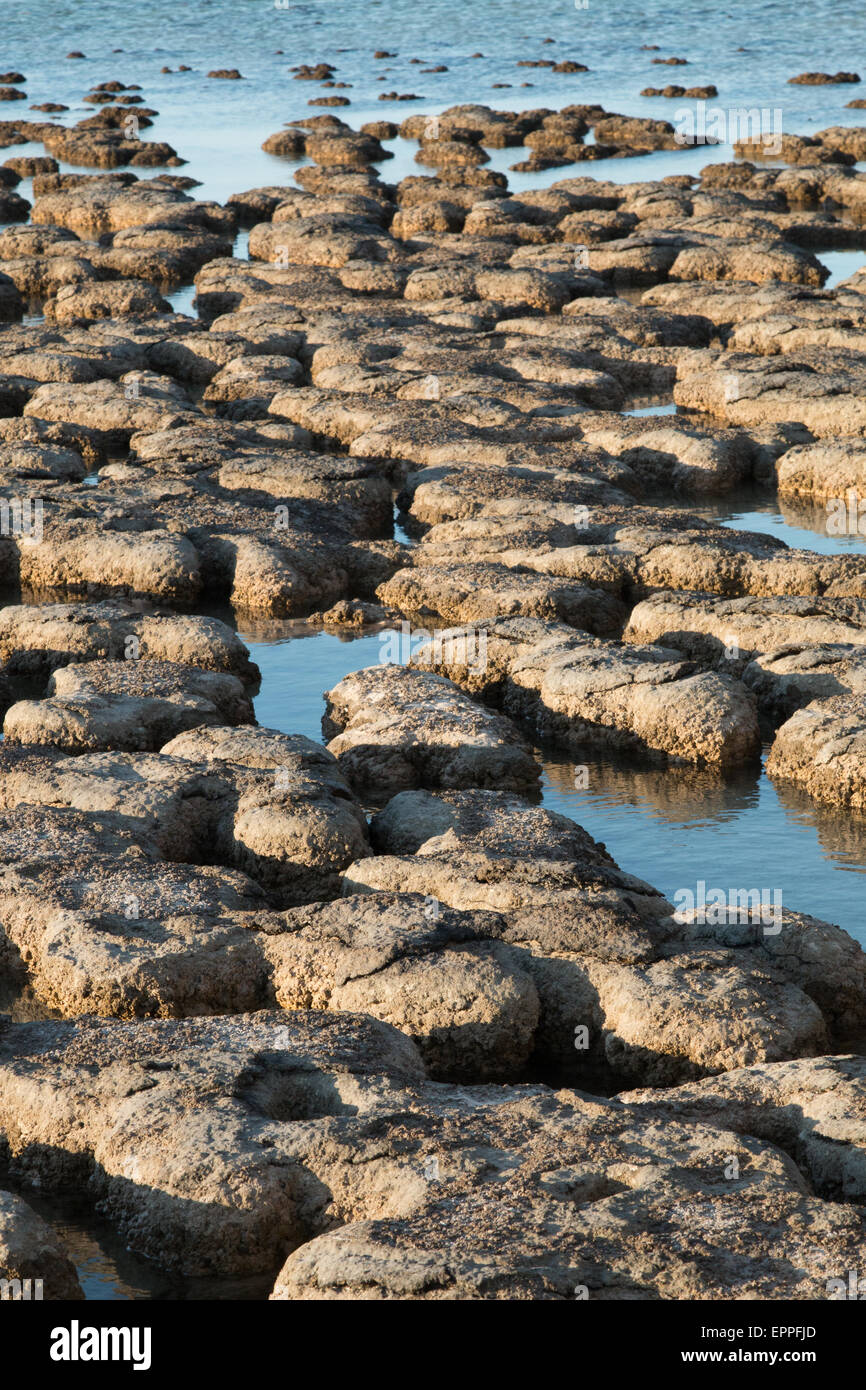
Stromatolites at Hamelin, Shark Bay, Western Australia Stock Photo Alamy
Morphology Paleoproterozoic oncoids from the Franceville Basin, Gabon, Central Africa. Oncoids are unfixed stromatolites ranging in size from a few millimeters to a few centimeters Fossilized stromatolites, about 425 million years old, in the Soeginina Beds (Paadla Formation, Ludlow, Silurian) near Kübassaare, Estonia

Stromatolites, Shark Bay, Western Australia Stock Photo Image of oxygen, marine 65596144
Rare survival These pre-historic formations have also survived in Shark Bay, Western Australia, but Dr Camens said scientists do not know what influences their current distribution. Stromatolites are microbial reefs created by cyanobacteria, their deposits are formed by sediment being trapped and bound. (ABC Eyre Peninsula: Evelyn Leckie)
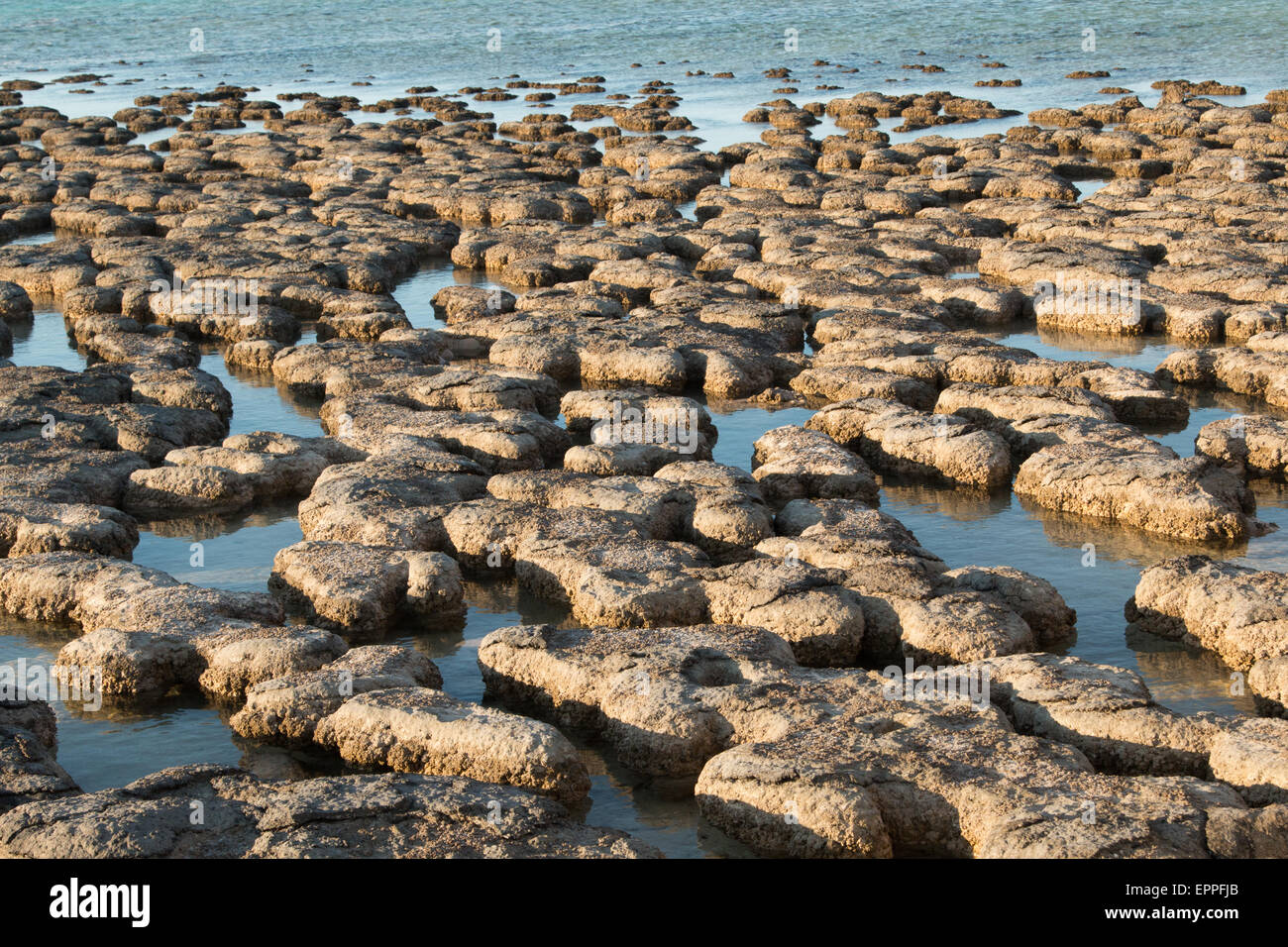
Stromatolites at Hamelin, Shark Bay, Western Australia Stock Photo Alamy
Western Australia's famous 3.5-billion-year-old stromatolites contain microbial remains of some of the earliest life on Earth, UNSW scientists have found. Photomicrograph of pyritized stromatolites from the 3.5 billion-year-old Dresser Formation. The stromatolites are delineated by pyrite, also known as fool's gold.
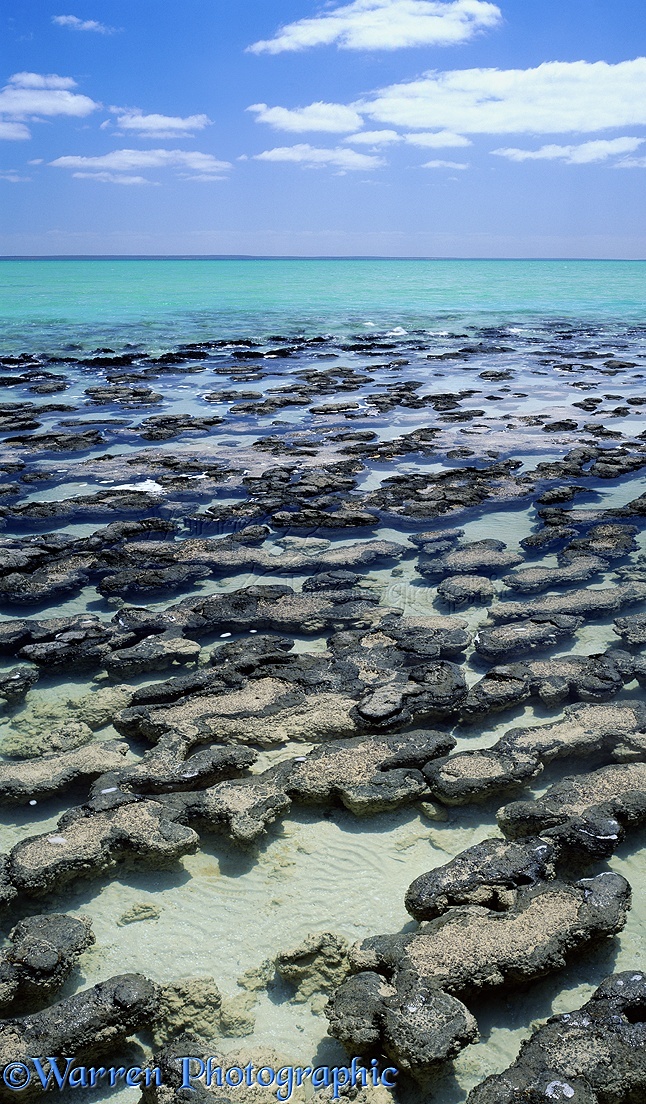
Stromatolites photo WP00739
Western Australia perhaps has the best Stromatolite fossils, giving a record through the eons of time. Fossils of the earliest known Stromatolites, about 3.5 billion years old, are to be found near Marble Bar in the Pilbara Stromatolites represent what is seen to be the biggest continuous biological lineage known in the world.

Stromatolites photo WP02396
Stromatolites and their close cousins, thrombolites are living fossils that have been producing oxygen for about 3.5 billion years. This means that when you're looking at these rock-like structures you're essentially stepping back in time and seeing at how life was billions of years ago.

6.2" Polished Archean Stromatolite Fossil Western Australia (150686) For Sale
The 3,430-million-year-old Strelley Pool Chert (SPC) (Pilbara Craton, Australia) is a sedimentary rock formation containing laminated structures of probable biological origin (stromatolites)..

Stromatolites Lake Thetis Western Australia Stock Photo Image of prehistoric, australian
Fossils called stromatolites from Western Australia were created by microbes 3.48 billion years ago. A sample of Dresser Formation stromatolite, showing a complex layered structure formed.

Stromatolites at shark Bay Western Australia (Photo taken by Stuart... Download Scientific Diagram
On our way into Shark Bay, 3.5 hours north of Perth, we stopped to see the most diverse and abundant living stromatolite community in the world. Stromatolites are similar to thrombolites in that they are communities of bacteria and are photosynthetic. Unlike the clotting structure of the thrombolites, stromatolites grow in layers and are taller.

Stromatolites in the Shark Bay Area, Western Australia Stock Photo Alamy
The Hamelin Pool stromatolites are located approximately 1 hour, 30 minutes' drive from Denham and 1 hour, 45 minutes' drive from Monkey Mia. Driving from Perth to Denham takes approximately 8.5 hours (subject to rest breaks and overnight stops), or it's a two hour flight with Regional Express Airlines from Perth.
The Hamelin Pool stromatolites of the Shark Bay World Heritage Area, Western Australia. The
The 3.35 Ga Strelley Pool Formation 'egg carton' stromatolites at the Trendall locality in Western Australia. Credit: NASA/Mike Toillion Challenges in Fossil Detection

Stromatolites. Hamelin Pool Marine Nature Reserve, Shark Bay, Western Australia Stock Photo Alamy
There are only two well-developed marine Stromatolite areas in the world: in the Bahamas and at Hamelin Pool in the Shark Bay area of Western Australia. Hamelin Pool is home to the most extensive living Stromatolite system in the world: the organisms thrive in the area's hypersaline water, which is twice as salty as normal seawater.